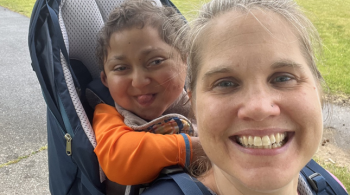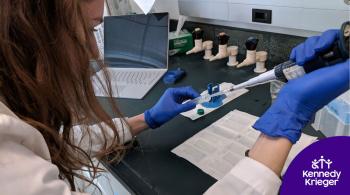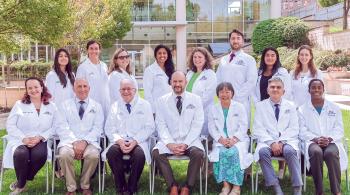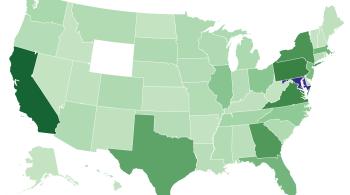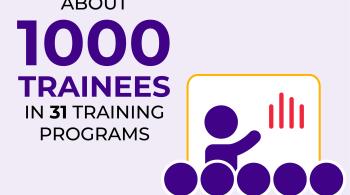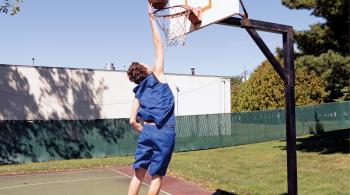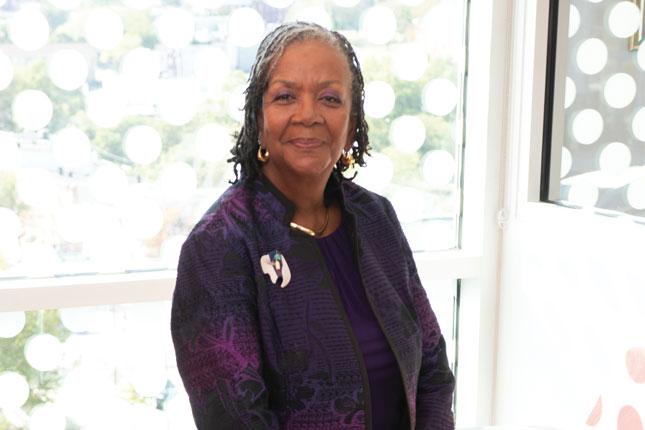
Dr. Renee Jenkins-Woodard
By Laura Thornton
As Dr. Renee Jenkins-Woodard prepared to retire from teaching at Howard University College of Medicine, she knew she still wanted to remain active in the field of pediatrics.
Her longtime friend Dr. Harolyn Belcher, director of the Center for Excellence in Public Health Leadership Training at Kennedy Krieger Institute, suggested she visit Kennedy Krieger to see if it was a place she might like to support. That’s when Dr. Jenkins-Woodard found her next calling. “I took the tour and had some great conversations with Kennedy Krieger faculty members,” she says. “It was very exciting.”
Not content to settle into retirement after a long and storied career, Dr. Jenkins-Woodard wanted to keep making a difference. She’d been the first African American president for both the American Academy of Pediatrics and the Society of Adolescent Medicine. She literally wrote the book on adolescent medicine, contributing to two editions of “Nelson’s Textbook of Pediatrics,” commonly used by pediatricians across the country.
It’s a privilege to partner with Kennedy Krieger and support its important work.” – Dr. Renee Jenkins-Woodard
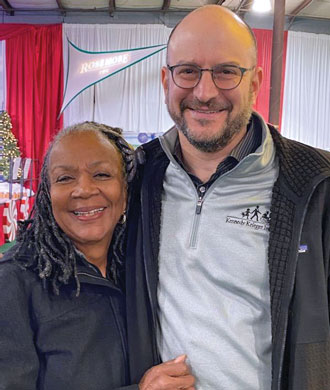
Dr. Jenkins-Woodard with Dr. Bradley L. Schlaggar,
president and CEO of Kennedy Krieger
Dr. Jenkins-Woodard joined the Kennedy Krieger Institute Board of Directors in 2019 and was soon chairing the board’s Hospital and Professional Affairs Committee. “Through that, I got to learn more about Kennedy Krieger’s faculty,” she says. “I’m fascinated by the incredible work they’re doing, and how unusual some of their research is.”
She’s also a member of the board’s Science Committee, championing the importance of Kennedy Krieger research. “Children aren’t generally high on the list for research interventions,” she explains. “You must step up for children who have rare conditions. The research that happens at Kennedy Krieger can be life-changing for these children, and it’s important not just locally, but globally.”
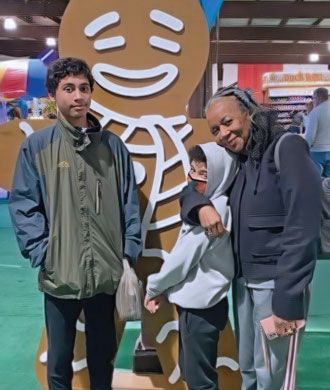
Dr. Jenkins-Woodard with her grandsons,
Julius and Jay, at Kennedy Krieger’s Festival of Trees
Dr. Jenkins-Woodard has been stepping up her entire career—and she says being part of Kennedy Krieger’s board allows her to continue to “contribute to some very positive things.” In return, she gives back to the Institute—not just in time, talent and expertise, but monetarily as well, giving annually to the Institute as a member of the Kennedy Krieger Society.
“I’ve always been a collaborator, looking for ways to partner with others to further our impact,” she says. “It’s a privilege to partner with Kennedy Krieger and support its important work.”


